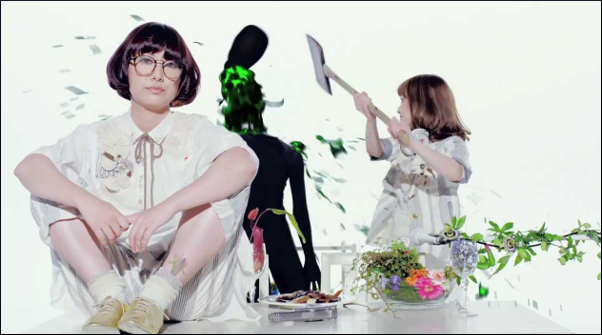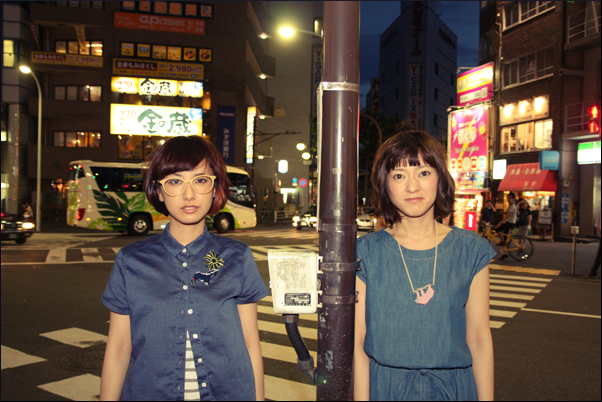
- Hate
- Released in: 2012
This song criticizes stereotypical Japanese culture and girls who mindlessly follow fashion and call everything “kawaii” (cute)

This song criticizes stereotypical Japanese culture and girls who mindlessly follow fashion and call everything “kawaii” (cute)
In a country where the charts are dominated by cutesy girls singing about little else other than love and clothes, Charisma.com provide a different sound. DJ Gonchi’s contemporary electro beats serve as a catchy backdrop for MC Itsuka’s raw lyrics. The duo came together in 2011, though they were long-time friends before that, going all the way back to junior high. Both are still working in their regular office jobs, which provide inspiration for songs like “OL Hero.” The two girls settled on the name Charisma.com because someone told MC Itsuka that she had charisma, and the duo mistakenly believed that “.com” signified a company, like “Ltd.”
Their first track on their 2013 debut mini-album I I Syndrome, called “Hate,” criticizes stereotypical Japanese culture and girls who mindlessly follow fashion and call everything “kawaii” (cute). This is evidenced by the lyrics: “Nani ga nan de mo kanjigarame de kawaii ~tte icchau shugi” (Completely bound hand and foot, call it "cute" – that's the principle). Charisma.com are targeting girls and women who refer to anything remotely interesting as “cute,” poisoning everyday conversation. The phrase “tte icchau” is a colloquial form of “to itte shimau,” suggesting that even empowered women like DJ Gonchi and MC Itsuka are not immune to the “cutefication” affecting every aspect of modern Japan, including the language.

Also noteworthy is the music video for “Hate,” since it breaks with convention and is a form of protest in and of itself. Whereas most Japanese female artists dance around in their videos, Charisma.com sit behind a desk looking mostly bored. In the background, faceless male dancers covered in black move around and annoy DJ Gonchi. They offer her cake, but she refuses. They take it back and, instead, offer up a plate of worms (actually gummy candy), which she gratefully devours. It’s a perfect metaphor of the band’s rejection of cuteness (the cake) in favor of the non-conventional (the worms).

On their YouTube channel, Charisma.com have uploaded short clips dubbed “dotto telebishon” (dot television), in which they talk about the meaning behind their songs and announce upcoming events. The way they talk about everyday life is interesting, forgoing the standard greeting of “konnichi wa” for a more colloquial “gokigen yo.” Also, they reverse the standard “dozo yoroshiku” (literally “please be kind,” but more accurately translated as “pleased to meet you”) to “yoroshiku dozo.”
Although it is unlikely that any songs by Charisma.com will show up in regular pop charts anytime soon, their influence will hopefully inspire others to voice their true feelings and make thought-provoking lyrics more prevalent in Japanese pop. Even if DJ Gonchi and MC Itsuka have not quit their day jobs, we will surely hear a lot more from them in the years to come.